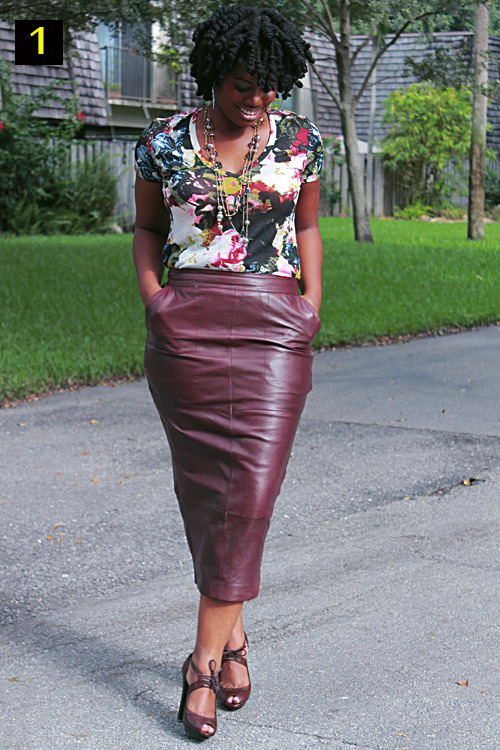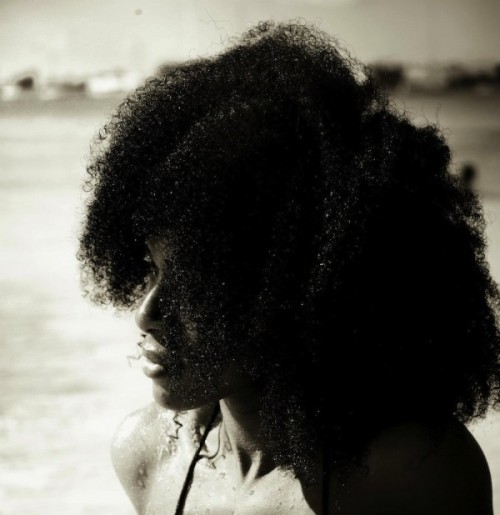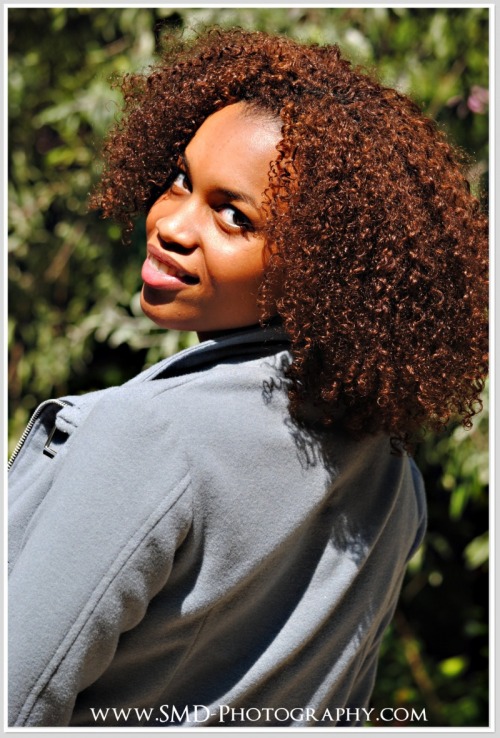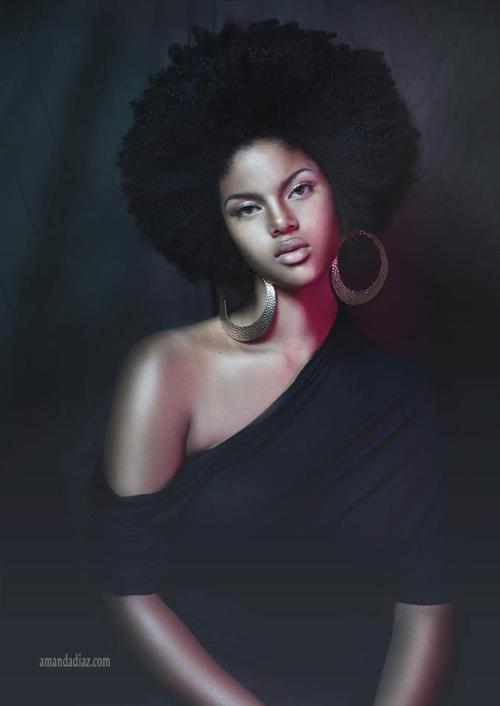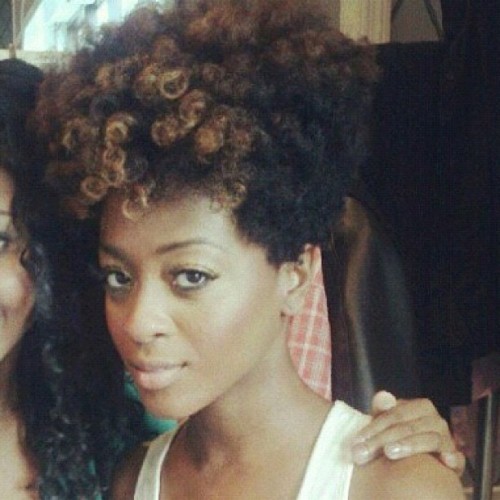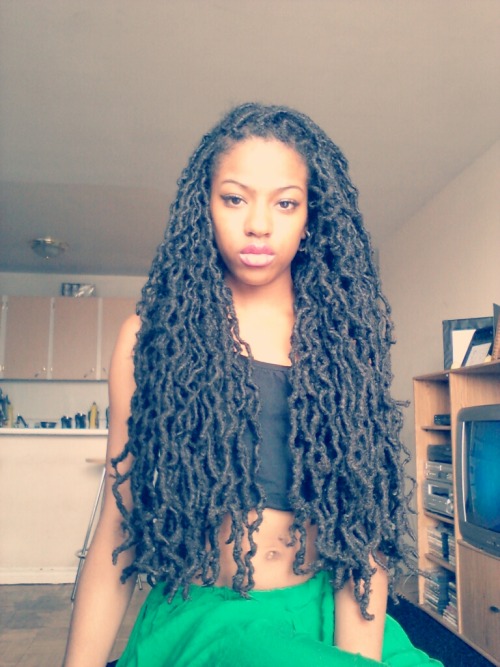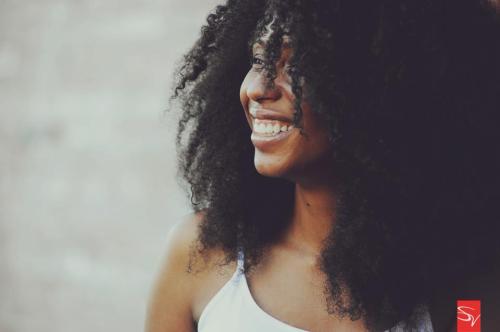Point blank.
Natural Black hair is the ultimate fashion accessory.
Showing posts with label black hair styles. Show all posts
Showing posts with label black hair styles. Show all posts
Thursday, September 3, 2015
Wednesday, August 26, 2015
Celebrating your doggie on National Dog Day
Today is National Dog Day -- and what better day than to celebrate the special pooch in your life!
Our dog, Teddy, is a rescue Shih Poo that we've had for five years. Love him to death - him and his crazy shenanigans.
Our dog, Teddy, is a rescue Shih Poo that we've had for five years. Love him to death - him and his crazy shenanigans.
Thursday, June 11, 2015
Monday, November 24, 2014
On vacay in the Bahamas
Spent almost a week luxuriating on a cruise in the Bahamas for my 40th birthday. And I had not one natural hair worry in the world. I had my hair pressed about a month ago and was too damn lazy to do anything to it. Plus it rained in Nassau, and I was in the middle of the Atlantic Ocean.
So I wore a fedora and a top knot. And that was that!
So I wore a fedora and a top knot. And that was that!
 |
| On the cruise deck |
 | |||||
| A fedora solves most hair anything |
 |
| Jamaican graffiti |
 |
| Nassau was lovely, just rainy and "cold" by Bahamian standards |
 | ||||||||
| At the beach in Freeport |
Friday, February 28, 2014
HairSpiration Friday!
By Tenisha Mercer
www.HairNista.Blogspot.com
Hair Friday! Pictures sourced from 4UsNaturals on Facebook.
Her hair is giving me life!
www.HairNista.Blogspot.com
Hair Friday! Pictures sourced from 4UsNaturals on Facebook.
Her hair is giving me life!
Monday, November 25, 2013
Wednesday, October 30, 2013
What will Kerry Washington wear while pregnant?
By Tenisha Mercer
www.HairNista.Blogspot.com
Gladiators, get ready to pop the champagne.
Scandal actress Kerry Washington is pregnant. The 36-year-old star, who married San Francisco 40ers Nnamdi Asomugha in June, is reportedly about four months pregnant with her first child, according to US Weekly.
With news of this announcement, I can't help but think about how stylish Kerry is going to look while pregnant. I know she'll turn up maternity fashions. Here are a few things I think she might wear:
www.HairNista.Blogspot.com
Gladiators, get ready to pop the champagne.
Scandal actress Kerry Washington is pregnant. The 36-year-old star, who married San Francisco 40ers Nnamdi Asomugha in June, is reportedly about four months pregnant with her first child, according to US Weekly.
With news of this announcement, I can't help but think about how stylish Kerry is going to look while pregnant. I know she'll turn up maternity fashions. Here are a few things I think she might wear:
Wednesday, October 16, 2013
'Black' hairstyles on white women
By Tenisha Mercer
www.HairNista.Blogspot.com
We've all seen 'that' girl -- the white girl who will rock the hell out of Black hairstyles, wears Black styles better than Keisha, talks Black lingo better than folks 10 shades deeper and just loves Black - period.
Close your eyes and you'd swear you were talking to a Black woman and honestly, she thinks she's black, anyway; she's just light skinned, LOL.
Yet, for all the admiration and love of Black culture and the many things that define it, that usually goes out the window right about the time the corporate climb happens. For some, that's during college or right before it, but it's at the point where many, though not all, choose their ethnic heritage in favor of moving up the career ladder.
www.HairNista.Blogspot.com
We've all seen 'that' girl -- the white girl who will rock the hell out of Black hairstyles, wears Black styles better than Keisha, talks Black lingo better than folks 10 shades deeper and just loves Black - period.
Close your eyes and you'd swear you were talking to a Black woman and honestly, she thinks she's black, anyway; she's just light skinned, LOL.
Yet, for all the admiration and love of Black culture and the many things that define it, that usually goes out the window right about the time the corporate climb happens. For some, that's during college or right before it, but it's at the point where many, though not all, choose their ethnic heritage in favor of moving up the career ladder.
Friday, March 15, 2013
Top Knots for Spring
By Tenisha Mercer
www.HairNista.Blogspot.com
It's not even warm out, but already I'm thinking about how to wear my hair this summer.
Flipping through the pages of Essence, I saw a beautiful collection of top knots.
Enjoy!
www.HairNista.Blogspot.com
It's not even warm out, but already I'm thinking about how to wear my hair this summer.
Flipping through the pages of Essence, I saw a beautiful collection of top knots.
Enjoy!
 |
| Anika Noni Rose's reverse top knot. Nice! |
 |
| I love Garcelle Beauvais' top knot I like Tina Campbell's braided top knot Thandie Newton's curly top knot Kerry Washington with the perfect summer look Niecy Nash's knot with bangs |
Friday, November 2, 2012
HairCrush Fridays
A few of my fave hair pics from my fave natural hair site -- BlkGirlsRock.Tumblr.com. Enjoy!
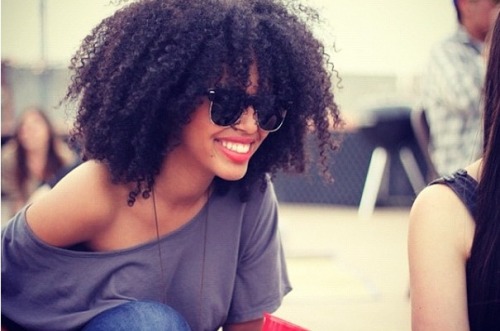 |
| Her curls are the bizness. Seriously. Source |
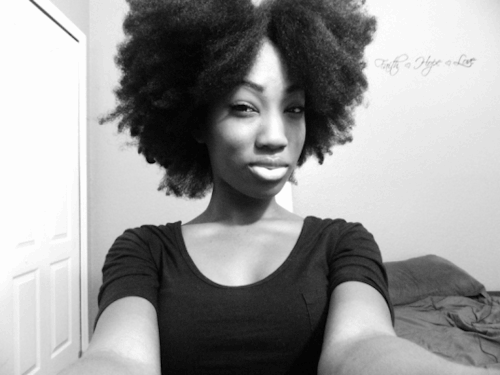 |
| Lush hair, I swear! Source |
 |
| Love her hair. Source |
Saturday, October 27, 2012
Friday, October 19, 2012
Monday, September 24, 2012
Friday, September 21, 2012
Friday, September 7, 2012
Black-Owned Natural Hair Companies Carve A Large Slice of the Market, But Can They Sustain It?
In case you didn't get the memo, natural hair products are running things, launching homegrown products that cater to customers with natural hair. Many of those entrepreneurs are also Black.
Check out thisClutch Magazine article about black-owned natural hair companies eclipsing large, mainstream brands.
The article was so brilliant that I thought it should be reprinted in its entirety.
Black Hair and Black Business
Nothing much to add, only that, this is exactly what should be happening. While mainstream (white) hair manufactuers can and do make ethnic products, they shouldn't be the only choice. If this was the Hispanic hair care market (or name your ethnic group), this wouldn't even be a convo. How crazy does it sound for an ethnic community NOT to control the hair care products used on THEIR hair?
Crazy, right? But, it's what we've endured for years, after many Black hair care manufacturers were bought out by international companies decades ago.
Fast forward a few decades later. Shunning relaxers, more black women are wearing their natural hair. But they had few on-the-shelf products for their natural kinks, curls and coils. Black entrepreneurs, many of whom started their companies mixing up p ingredients in their kitchens, saw an opportunity in the natural hair care market and seized it.
Mainstream companies were still sipping the Kool Aid, thinking natural hair was a trend that would quickly pass. Nah, boo, boo. They ignored it -- to their peril, as relaxer sales have declined double digits since 2007. They've since seen the light and, while late to the party, they're now gunning toward natural hair companies' profits and customers with new natural hair lines of their own.
Modern Day Madame C.J. Walkers?
A lot is fair in capitalism, but let's be careful not to let history repeat itself. Once large Black-owned hair cair companies like iconic Johnson Products were bought out by large, multi-national conglomerates in the 70s and 80s, we saw what happened after that: few, if any, quality Black hair care products emerged from those lines. We used to control our own hair products, but no more. Hair styles shifted, and the larger companies that swallowed the Black-owned companies whole predicted the death of Black-owned hair care companies.
That didn't quite happen.
Though their ranks were decimated, Black brands like Dudley and Luster upheld the Black hair care tradition. Now, they're joined by hordes of smaller, though effective, natural hair care companies like Miss Jessie's, Kinky Curly, Shea Moisture, Karen's Body Beautiful, Oyin Handmade, Jane Carter Solution and Carol's Daughter --- and hundreds if not thousands of tiny upstarts.
I'm not anyone to tell another entrepreneur how to run their business, but let's make sure we learn from our history.
The reprint from Clutch Magazine is below.
What do you think about Black-owned companies' survival in the natural hair market?
| Lisa Price, founder of Carol's Daughter, is among a wave of new Black hair entrepreneurs with products for natural hair |
Check out thisClutch Magazine article about black-owned natural hair companies eclipsing large, mainstream brands.
The article was so brilliant that I thought it should be reprinted in its entirety.
Black Hair and Black Business
Nothing much to add, only that, this is exactly what should be happening. While mainstream (white) hair manufactuers can and do make ethnic products, they shouldn't be the only choice. If this was the Hispanic hair care market (or name your ethnic group), this wouldn't even be a convo. How crazy does it sound for an ethnic community NOT to control the hair care products used on THEIR hair?
Crazy, right? But, it's what we've endured for years, after many Black hair care manufacturers were bought out by international companies decades ago.
Fast forward a few decades later. Shunning relaxers, more black women are wearing their natural hair. But they had few on-the-shelf products for their natural kinks, curls and coils. Black entrepreneurs, many of whom started their companies mixing up p ingredients in their kitchens, saw an opportunity in the natural hair care market and seized it.
Mainstream companies were still sipping the Kool Aid, thinking natural hair was a trend that would quickly pass. Nah, boo, boo. They ignored it -- to their peril, as relaxer sales have declined double digits since 2007. They've since seen the light and, while late to the party, they're now gunning toward natural hair companies' profits and customers with new natural hair lines of their own.
Modern Day Madame C.J. Walkers?
A lot is fair in capitalism, but let's be careful not to let history repeat itself. Once large Black-owned hair cair companies like iconic Johnson Products were bought out by large, multi-national conglomerates in the 70s and 80s, we saw what happened after that: few, if any, quality Black hair care products emerged from those lines. We used to control our own hair products, but no more. Hair styles shifted, and the larger companies that swallowed the Black-owned companies whole predicted the death of Black-owned hair care companies.
That didn't quite happen.
Though their ranks were decimated, Black brands like Dudley and Luster upheld the Black hair care tradition. Now, they're joined by hordes of smaller, though effective, natural hair care companies like Miss Jessie's, Kinky Curly, Shea Moisture, Karen's Body Beautiful, Oyin Handmade, Jane Carter Solution and Carol's Daughter --- and hundreds if not thousands of tiny upstarts.
I'm not anyone to tell another entrepreneur how to run their business, but let's make sure we learn from our history.
The reprint from Clutch Magazine is below.
What do you think about Black-owned companies' survival in the natural hair market?
This year popular cosmetics and hair care line Carol’s Daughter launched the site Transitioning Movement. Meant to help guide women giving up chemical relaxers into the oft-confusing and conflicting world that is “going natural,” the multi-million dollar corporation seeks to both inform — and expand their base.
Can you blame them? There’s money in those curls. But for once, it seems women and minority-owned product lines got to the market first.Carol’s Daughter. Miss Jessie’s. Karen’s Body Beautiful. Qhemet Biologics. Oyin Handmade.Kinky-Curly. All leaders in providing products to those moving from chemical processes to natural. All still independently-owned. All started by women of color – like African American Karen Tappin of her namesake company and biracial black and Japanese sisters Miko and Titi Branch of Miss Jessie’s.
But that’s not how it typically goes down. While several natural hair care alternatives run by women of color dominated the conversation, L’Oreal and other major retailers saw their overall sales in the black hair care market fall in 2009.
Long gone are the days when you had civil rights activists pushing for stores to carry black hair care products on their shelves. Rainbow Coalition/PUSH, activist Rev. Jesse Jackson once spearheaded a campaign to get major retailers to carry black hair car and skin products in their stores in the 1970s and 80s.
Jackson’s effort was a sort of capitalist attack on racism. He famously held a funeral for cosmetic company Revlon when a representative declared black businesses would become extinct from larger white companies snatching them up. But the reverend had a point – black people shopped at Wal-Mart, Target, K-Mart, and a multitude of places. Why not carry goods for them and integrate the cosmetics aisle? Segregation divides us. Capitalism teaches us the one with the most money wins.
Racism can really impact your financial bottom line.
Yet, since racism is nonsensical, with every new black innovation, there’s typically a lag time between what black people want and when corporations start providing. This is why a company founded by black Americans, Johnson Products — creator of your grandmother’s hair oil of choice “Ultra Sheen” — found itself bought up by Proctor & Gamble. (And after floundering there for years, having its thunder stolen by the likes of multinational cosmetic corporations, it was sold to a black management firm in 2009.)
How does this happen when, since 1954, Johnson was one of the only people making black hair care products? It happens when Johnson becomes complacent and doesn’t adapt to the needs of its customers for so long that multinational firms finally are able to catch up, realize there’s money to be made, copy and improve on the product, then woo away their consumer base.
My father, a loving creature of habit, used Afro Sheen for decades. Myself, my mother, and sisters did not. We moved on to products less heavy and greasy, giving us better results. And for a while, those came from the likes of the slowest adopters to black hair care, but once they smelled the money, were the most aggressive, dogged, and prolific.
But not anymore.
While companies like L’Oreal, Pantene, Revlon, and Proctor & Gamble rush to adapt themselves to this rapidly shifting market, they aren’t the ones able to dictate what’s hot and what’s not. They can’t afford to have the attitude former Revlon President Irving J. Bottner had back in 1986 when spoke on what it meant for companies like his to compete with black-owned firms: ”In the next couple of years, the black-owned businesses will disappear. They’ll all be sold to white companies.”
These companies are now followers – shifting formulas and marketing strategies to keep up with their African-American lead upstarts, who came out to dominate the market right from underneath them.
Going natural is now a big and growing part of the more than $165 million black hair care mass market. Companies that focused primarily on creating hair relaxers are scrambling to capitalize on what they initially thought would be just a “fad.”
But the fad talk has faded away to the realization that this might not simply be a trend, but a larger movement in hair maintenance for black women.
“Views of beauty have shifted,” said Winston Benons, brand manager for Miss Jessie’s, a hair care line catering to women with naturally curly hair. Benons emphasized that, with this new idea of beauty, black women have more choices in products and styling techniques than ever.“We have products that perform well. We have products that enhance their natural hair. It looks beautiful. It looks presentable. These products are here,” Benons said. “Generally salon brands tend to keep their secrets. They keep on how the product is used and all that stuff. We’re putting up before after pictures, how-to videos and materials, talking about the best ways to use them.”
Benons said Miss Jessies is “at the forefront” in this “natural hair movement.”
Right now there are a multitude of popular natural hair blogs and online news sites – from popular destinations with large followings like Black Girl with Long Hair, Curly Nikki, Afrobella, K is For Kinky and Hair Milk – to the multitudes of personal blogs, hair video bloggers, and niche writers who detail their personal journey from perms and hair weaves to every type and variety of curl.
The attitude is even revolutionizing black salons. For years I stopped going after tiring of stylists who had no interest in helping me with my natural hair or overloaded their appointments, leading to me spending an endless Saturday at the shop.
But after a brief stint with salons run by recent immigrants, such as Dominicans and Ethiopians, I finally found a salon and an African American stylist in Washington, D.C. who had that perfect combination of hair education and business sense that made me want to show up on time for my appointment and leave a tip. She was largely horrified at my stories of stylists who openly told me they hated doing my hair and over-charged me out of annoyance or excessive wait times – but she wasn’t surprised.
Again, complacency had hit the salon community for some African American hairdressers. But as hair needs and desires change, many stylists realized it was matter of business. Either adapt or lose your customers
You can be another natural hair success story like Karen Tappin. Or you can get left behind as Ultra Sheen had for decades until finally scrambling back to its roots. Just like deciding whether to go curly or straight – the choice is yours.
Friday, August 31, 2012
Natural Hair Pic of the Day
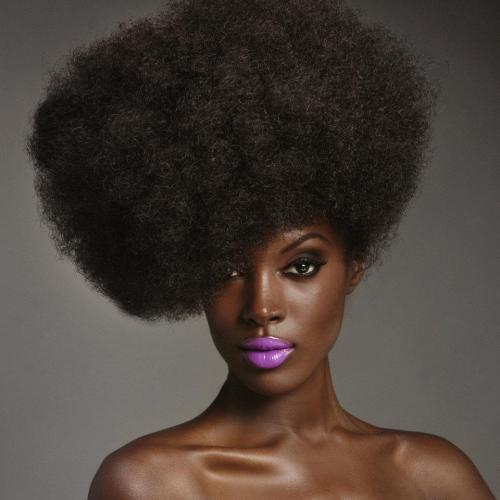 |
| I would not think her lip color would work, but I love it on her! Source |
Monday, August 27, 2012
Wednesday, August 15, 2012
Wednesday, August 8, 2012
Friday, August 3, 2012
Subscribe to:
Posts (Atom)

















